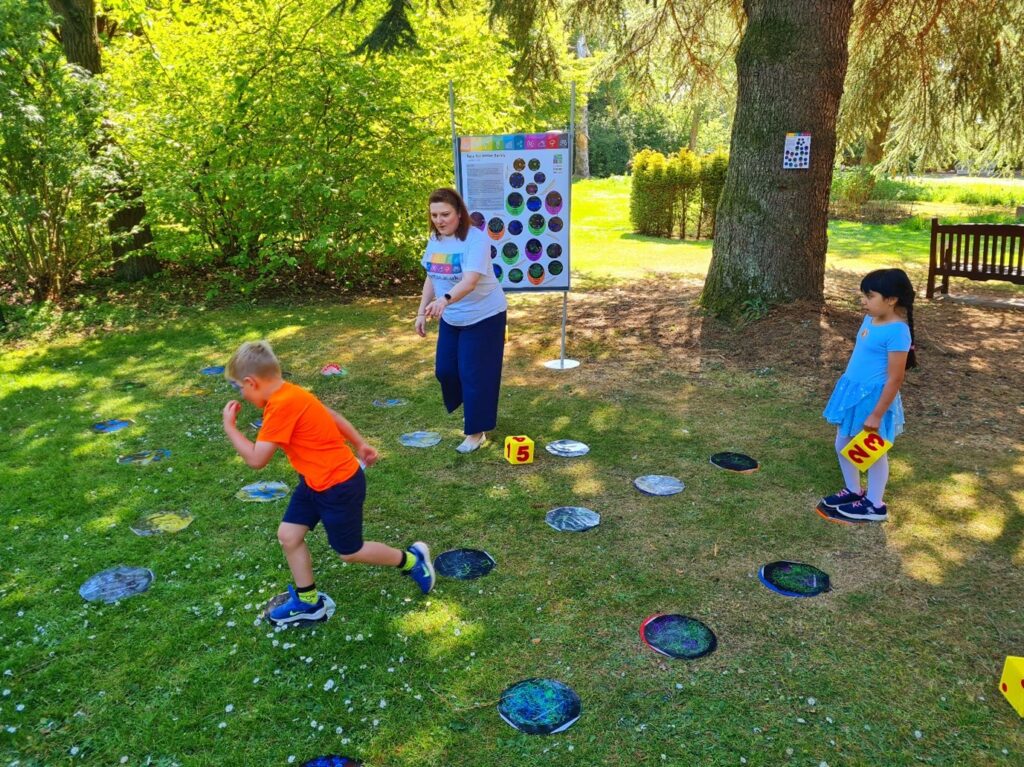Why plant science matters – and how we share it with the public
What’s a good way to help people of all ages understand what plant scientists actually do? Turn it into a game of Snakes and Ladders but call it ‘The Race for Better Barley’.
Isabelle Colas has found this is a great way to explain how her areas of research – plant fertility, cell division, gene variation – are as crucial in plants as they are in humans.
The game is designed to give people a feel for what it’s like to be a plant breeder or scientist. Each square on the board represents a stage in meiosis—the special type of cell division that creates pollen and egg cells in plants (and sperm and egg cells in animals). One starting cell divides to form four genetically unique cells, each with a different combination of genes, which carry traits like height, colour, or disease resistance.
The board is illustrated with real barley meiocytes (cells undergoing meiosis) that Isabelle captured using super-resolution microscopy.
The aim of the game? To reach the Golden Pollen. It’s visually striking, with colourful images, a giant dice, and chromosomes you can jump or run along. Players experience firsthand how research funding helps them move ahead as well as how setbacks in development can send them backwards.

At the end of the game, players have to “draw” or select the perfect golden pollen. Thanks to gene shuffling, each pollen grain is different. That randomness reflects the real challenge breeders face: no two outcomes are the same, and getting the right traits takes time and patience.
The public is often amazed by how complex plant breeding really is. And that’s exactly the point. This game turns advanced biological concepts into something tangible and fun, and it’s a hit with kids and parents alike. They have a great time racing for better barley and walk away having learned something new about the science behind our food.
Isabelle was one of a large team from the Hutton taking part in Plant Power 2025 in the Dundee Botanic Garden. An amazing 720 people attended to learn in a fun, informal way why plant science matters and the initial feedback from visitors was very positive.
When asked what they liked most about Plant Power, they said:
- The students and organisers attending the stalls showed great enthusiasm, very knowledgeable and clearly wanted to be there.
- The children had the best time.
- The abundance of activities for children of all ages.
- Accessible and free-flowing.
- Lots of different engaging points for the kids (and grown-ups) with plenty of space to roam and explore too.

Plant Power Day is one of the best opportunities we have each year to show the public just how fascinating and important plant research really is. All the activities on offer are designed to be short, engaging, and accessible for children of all ages. The goal is to share simple but powerful scientific messages in a fun and interactive way. Of course, it is very much a team effort so congratulations must go to everyone involved in making it such a success.
Blog by:
Isabelle Colas
Plant Molecular Geneticist
Based in Dundee
T: +44 (0)344 928 5428 (*)
Disclaimer: The views expressed in this blog post are the views of the author, and not an official position of the institute or funder.
